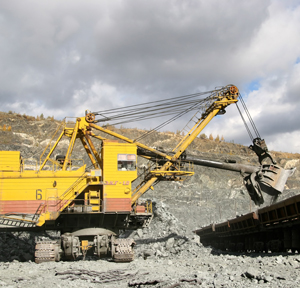Investment Strategies
Africa's Investment Promise Confounds The Naysayers As Hard Numbers Impress

Africa is getting growing respect as a place for serious investors. Despite problems in parts of the continent, some of the numbers make a strong case for holding assets in Africa.
With so much grim economic news around, it is easy to see why a part of the world seemingly habituated to poverty and violence can get overlooked in the usual 24/7 media cycle. But as investors are increasingly discovering, Africa appears to be a region with plenty of promise for those willing to look beyond the headlines.
African shares have been surging in recent years. The EFM Africa Index delivered, in dollar terms, one-year annualised total returns - capital growth and dividends - of 20.49 cent as at 25 July, according to MSCI Barra, the index provider. Over five years, the EFM Africa Index shows returns of 11.49 per cent on an annualised basis. Compare that result with say, the MSCI World Index of developed countries’ returns, at 2.68 per cent, over five years on an annualised basis. Even allowing for possible distortions, the performance gap is impressive.
There are several drivers for this strong African performance. Among the causes has been a surge in demand for commodities from resource-hungry China - and Africa is home to large deposits of precious and industrial metals (hence the mining graphic attached to this article). The results are coming through: some 10 African countries have a GDP per capita greater than China and its total stock market capitalisation is $1 trillion, rising at a compound annual rate of 22 per cent since 2002. There is big agricultural potential as Africa is home to 20 per cent of the world’s land mass. A new consumer class is emerging: an estimated 221 million consumers will enter the market by 2015, driving demand for goods and services such as mobile telecoms.
Investment powerhouses such as Fidelity International, for example, have urged people to pay closer attention. Economic growth in Africa has averaged 6 per cent over the last decade, superior to that seen in India between 1995 and 2005. Of the current 10 fastest growing economies in the world, seven are African.
A number of funds operate in the Africa space, such as the Alquity Africa Fund, managed by David McIlroy of the Alquity Group and launched in June last year. It holds assets chosen from the entire continent, from the north Africa shore right down to the Cape of South Africa. And banks such as Standard Chartered and Barclays, both with strong historical ties to Africa, have been boosting wealth managers specialising in the continent.
“The continent (of Africa) still has a bit of a PR problem,” McIlroy told this publication recently, referring to some of the coverage of wars, famines and other problems in parts of Africa. “But Africa is so much more than that,” he continued.
In terms of democracy, in 1980, only 40 per cent of African countries could be defined as free or partly-free; that proportion has now risen to 60 per cent and will increase further due to the changes currently taking place in parts of north Africa, he said, citing data from Freedom House, the US institution that issues annual surveys on the state of the world in terms of freedoms.
Demographics in Africa favour rapid growth, McIlroy said, pointing out that a significant proportion of the population are young (60 per cent under the age of 25), in contrast to the ageing populations of much of the West and parts of Asia.
McIlroy points to his fund’s performance as testimony to Africa’s potential. In the year to June, the fund, which is registered for sale in the UK has delivered returns of 10 per cent after fees and other costs are taken out (in dollar terms). The fund, which is open-ended, is a UCITS III vehicle. The fund’s selection of equities comes from 12 sectors on stock markets in 12 countries throughout the African continent, as well as firms in other countries which derive most of their profits or revenues from African operations.
The Alquity Group is not the only firm to be tapping into Africa’s potential. Renaissance Asset Managers, which specialises in emerging markets, has Pan-African and Sub-Saharan funds structured as UCITS vehicles. Investec, the South Africa/London-listed bank, has products such as its Investec Africa Fund, which was launched in late 2005 and has ZAR5.4 billion of assets under management. (This fund charges an initial 4 per cent fee, with an annual management fee of 1 per cent and a 20 per cent performance haircut).
Investors can also obtain relatively simple exposure to Africa via exchange-traded funds, such as through the iShares MSCI South Africa ETF. This product, on an annualised basis, has made returns of 35.7 per cent, according to iShares.
African stock markets may not always be as liquid or easy to access as markets of more developed nations and there remain risks for the unwary, as the turmoil in north Africa recently demonstrated. (A key issue for any investor is the ability to get money out in times of stress). But although caution is always wise in a “frontier” market such as Africa, the performance numbers certainly provide food for thought.
